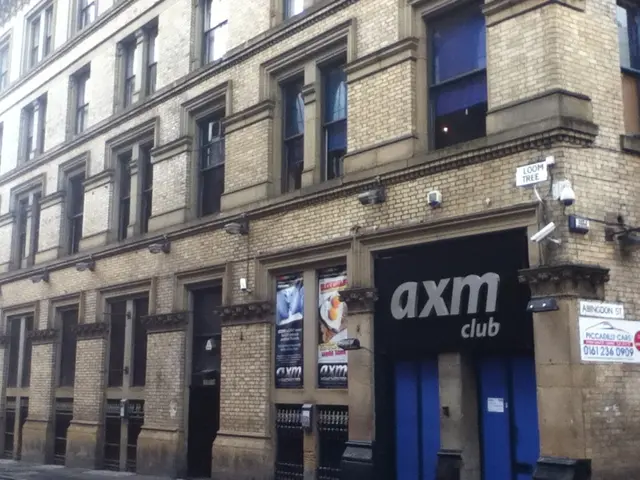Five-Alarm Rally in the Czech Republic Over Economy and Freedom
Fed up with the tightening financial belt and governmental meddling in media, the Czech Republic took to the streets for a nationwide protest against the current austerity policies. Schools across the country either took a day off or operated on a limited basis due to the unrest, as nearly 70% of schools supported joining the cause. The trade union umbrella organization, CMKOS, urged for hour-long work stoppages in numerous businesses and industries and estimated that thousands would gather in Prague for the rally.
The Czech Prime Minister, Petr Fiala, branded the unions' actions as irresponsible and uncalled for during such trying times for the country. The government recently green-lighted a comprehensive consolidation package for public finances, meaning the budget would be trimmed by around six billion euros over the next two years via higher taxes and reduced expenditure. The tax hikes will target things like alcohol, cigarettes, mineral water, and property, while the job count in public authorities and ministries will shrink by 3.5% from 2024 onward.
Why Czechs Are So Upset
- Economic Policies: The government's stringent budget cuts have sparked backlash among Czech citizens. Austerity measures have resulted in reduced funding for public services such as healthcare and education, ultimately impacting citizens by raising living costs and limiting access to crucial services.
- Media Control: The government's efforts to assert greater control over media through replacing the public radio and television network (RTVS) with a new organization managed by a government-appointed council have alarmed many. This move is perceived as a threat to press freedom and has incited strong opposition and protests.
- Labor Policies: The introduction of a new Labour Code has angered labor unions and workers due to restrictions on workers' rights and the cost of layoffs for employers. This has led to widespread dissatisfaction among workers and trade unions.
Ripple Effects of the Protests
- Public Animosity: Protests have fueled a wave of public anger, with widespread demonstations and blockades across the country. The government's policies, particularly regarding the media and labor policies, have been the main targets of the discontent.
- Trade Union Involvement: Trade unions have taken an active role in the protests, voicing their concerns about the austerity measures' impact on workers. Although the unions have not spearheaded the protests, they have been part of the broader movement against the government's economic policies.
- Government Response: Facing criticism from both domestic and international sources, the government has been under scrutiny for its handling of the financial crisis. Critics argue that the measures are not only damaging the economy but also jeopardizing democratic rights, with the government's media control efforts being a prime example.
Notable Examples
- Petr Fiala: Fiala's government has been criticized for its handling of economic matters, such as labor policies. Fiala's plans to run again in the upcoming elections in South Moravia speak to the ongoing debate within the coalition regarding the best approach to addressing these issues.
- Robert Fico in Slovakia: Although not directly connected to the Czech Republic, the government of Robert Fico in Slovakia has also confronted protests due to its austerity measures and attempts to control the media. Fico's policies have received criticism from workers and media sources for their impact on both sectors.
In summary, widespread protests against the government's austerity measures and media control actions have taken place in the Czech Republic. Trade unions, while not leading the protest movement, have been actively involved in voicing their concerns. The government, faced with strong backlash, now confronts questions regarding the effectiveness of its economic policies and the potential impact on democratic rights.




